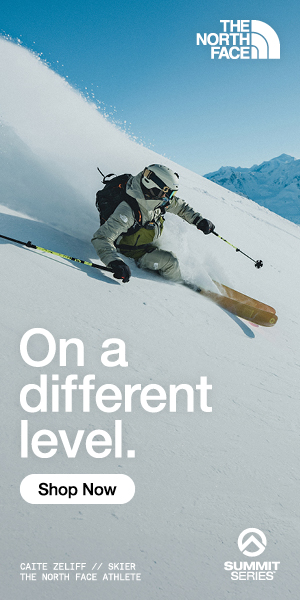Australian childcare worker, Bec Tonks, 31, first took up snowboarding in the southern winter of 2018 and was hooked. By February 2019 she’d taken a 10 day holiday to Niseko, fell in love with the community and the town and spent the rest of the year planning a change of career, pace and location. Destination, Japan.
By November that year she was living the powder life full time in Niseko and falling in love with a British snowboard instructor. By January 2020 Covid-19 reared its head, the town went quiet in February and by March, well, you know the rest.
Now, 8 months later, Bec is one of a handful of westerners still in the town during a powder season of epic proportions (when the rest of us can’t get there). At first that meant first tracks and powder stashes every time, now it’s a balance between socially distanced big powder by day and staying home by night to help contain the Covid cluster that arrived in town in early January.
An easy balance for most of us exhausted after a day in the white room, right?
This is Bec’s 2020/2021 winter story.
—
At the end of the 2020 season Dom and I were originally going to fly to Australia together where we both had work in Perisher and Thredbo. But then in mid-March Australia announced they were going to stop allowing non-residents to enter the country and Dom and I weren’t going to make the deadline to get him in. So our decision to stay here was made for us.
We were unemployed for the first few months but had enough savings to survive. Eventually we both found full time work, we enjoyed the spring, summer and autumn while we patiently waited for the snow to return.
During the first peak of Covid not many places closed down, just a few bars and I assume they closed due to lack of business after all the seasonal staff left town. In Japan it’s the norm to wear a mask, so we all jumped on board with that from April for every time we left the house.
Unlike Australia no one in Japan started panic buying toilet paper or were ever ordered to self-isolate, we weren’t restricted to a certain amount of people in a cafe or store at any one time. But now as of Jan 18 we’ve had 69 confirmed cases in the Niseko area, majority of them being employees at local restaurants and ski tech stores.
All residents have been asked to get tested if they start to show any symptoms. We’re being encouraged to not socialise with anyone outside our social circle, wear masks, sanitise and wash hands regularly. If we can work from home then we should do so.
We personally know people who have been tested positive and know people who have come in close contact with them and are awaiting their test results. But I believe as long as we take precautions we will be fine.
Government and locals support
We’ve been incredibly lucky in Niseko, the Japanese government has been so good to both their citizen residents and foreign residents. In April 2020 every single resident of Japan (including us foreigners) received a one off payment of ¥100,000 yen (equivalent of about AUD$1,200) paid directly into their Japanese bank account to help people who were struggling after losing their jobs earlier than expected.
The Japanese government also created many job vacancies for foreigners in either farm work or factory work for the summer and autumn period. I worked in a daikon factory for four months then in an onion factory for six weeks. This work paid ¥1,000 an hour (AUD$13).
In December 2020 I found a new job back in the company I worked for last winter. My job is snow clearing, I can choose my days and hours I want to work which gives me maximum time on the mountain and I get a 50% discounted lift pass through my employment.
There is also a foreigner support centre in our town, anyone is welcome to visit, they help struggling foreigners find work. They are so kind and so helpful. The Japanese government Covid rent relief for struggling residents covers rents up to ¥25,000 per month, just as long as you meet the requirements, and most of us meet those requirements. So that has helped a lot.
The locals, including farmers and house wives, have also held food drives for struggling foreigners that hadn’t been able to get home for whatever reason. Once every two months or so they’d gather donation food supplies and bag them up for us to collect from different venues around town – making it fair for people who lived in different areas and couldn’t travel easy. There would often be rice bags, fresh vegetables (which can be very expensive in japan) perishables and tin foods.
Upon collection we’d fill in a questionnaire so the locals could gather more information to help us – which day would be easiest to collect food, weekend or weekday or what challenges are you facing and how can they help?
I’d like to say how grateful my friends and I have been for the Japanese locals, the government, our work companies, everyone who has helped make life easy in Japan for foreigners while we wait out this pandemic.
The snow
I should, of course, mention the snow.
The taps turned on a few days before Christmas and just have not stopped, endless powder.
We can get on the mountain at 11am or 2pm and still find untouched powder, you just need to know where to find it.
This season, my job is snow clearing, oh man, some days I wish it would stop snowing so my muscles can catch a break. The locals actually said it is the best snowfall they’ve seen in six years. How lucky are we to experience this.
Since the mountain opened I haven’t had a day off of the mountain. And if I’m working too much in the day then I go night riding. I haven’t made it to the peak yet, but I’d say fresh lines down the peak early in the morning will probably top all my days so far.
The good and the bad
Being “stuck” in Japan was the best choice I could have made for myself for 2020. Not only was I in a very safe place, I was also spending time focusing and building on my new relationship with Dom.
I’ve learnt to speak conversational Japanese and to read Japanese, I have had experience in factory jobs I never thought I’d do and I’ve travelled, explored and camped around Hokkaido during summer.
I have spoken with my friends back home in Australia often and some of them are losing jobs, have been struggling with lockdowns. Some are still having mental health issues and have envied the relaxed life I’ve been living here in Japan.
It’s not all roses though, there are no international tourists and that presents a big problem. The local businesses have been struggling with income, some bars and restaurants had to close down temporarily because they weren’t getting any customers, therefore losing money.
We’re all encouraging each other to be Covid safe, to support local businesses, to social distance, wear masks. The resort has sanitising stations and two people per lift and there are not the usual annual winter parties in all the bars.
But to us it’s more important to have amazing days on the mountain with incredible powder lines than to have parties.
You can return to Australia only if you can afford it and find yourself a flight. Even when there are rare seats available they are around AUD$3000 to AUD$6000 one way and then there’s a mandatory $3000 quarantine when I return. Plus Dom wouldn’t be able to return with me and if he went back to England, then he’s walking straight into lockdown too.
I’m very fortunate where I am “stuck” for now and I’ve felt extremely safe in Niseko. It is definitely a season like no other with record snowfall and no lift lines. We’ll enjoy every moment of it while we can, because next season will hopefully herald the return of international skiers and boarders.
This is the first of a number of stories from foreigners in Japan’s ski towns for this season. Japan ski resorts are currently operating with Covid safe procedures while the country is closed to foreign arrivals (except foreign residents) until January 31.







































